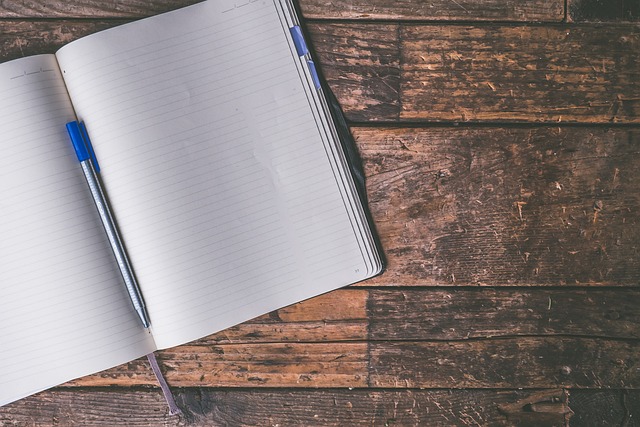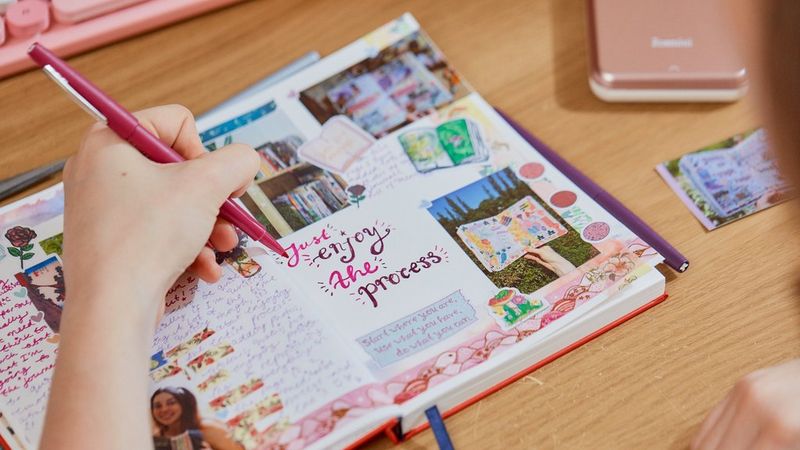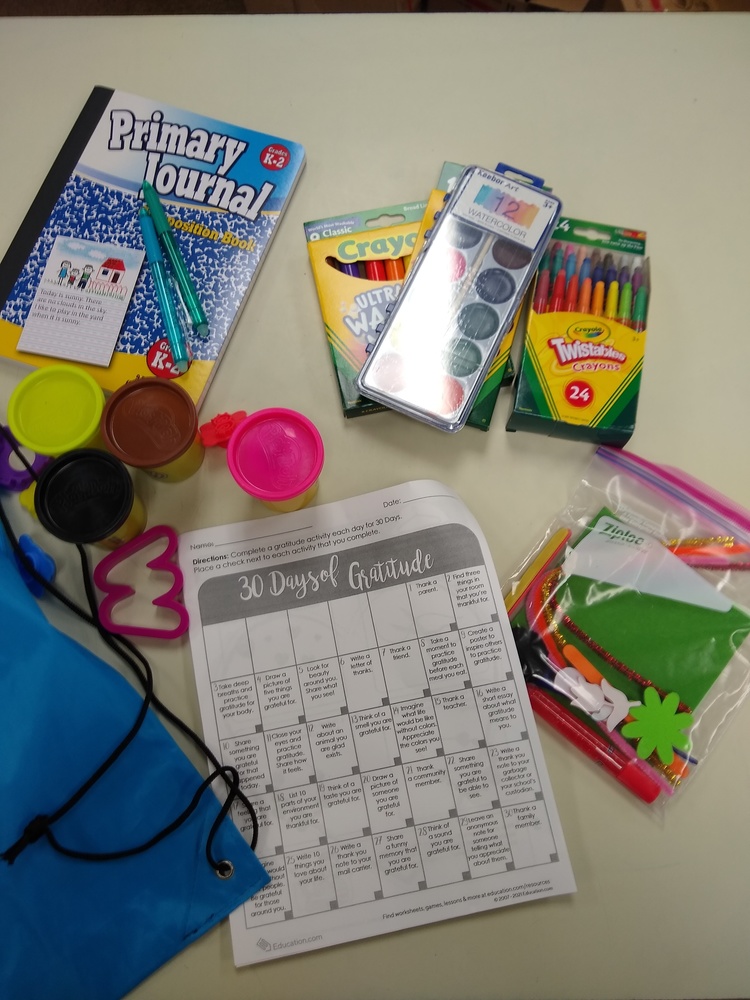
Discover the transformative power of journaling as we explore 10 ways it can enrich your life.
From enhancing self-reflection to boosting creativity and problem-solving skills, journaling offers a path to personal growth and development.
By fostering self-awareness and promoting stress reduction, it becomes a powerful tool for strengthening mental health and well-being.
With the freedom to explore your thoughts and emotions, journaling empowers you to set and achieve goals, deepening your self-discovery and self-confidence along the way.
Begin your journey towards a transformed life today.
Enhancing Self-Reflection
The practice of journaling can greatly enhance self-reflection and promote personal growth. By taking the time to put thoughts and feelings onto paper, individuals can gain a deeper understanding of themselves and their experiences. Journaling allows for introspection and encourages individuals to explore their thoughts and emotions in a safe and non-judgmental space. This process of self-reflection can lead to improved mindfulness and increased self-awareness.
When we engage in journaling, we create an opportunity to pause and reflect on our daily lives. Through the act of writing, we are able to make sense of our thoughts and emotions, gaining clarity and insight into our inner selves. By examining our experiences and emotions on paper, we can identify patterns, triggers, and recurring themes that may be affecting our well-being. This heightened self-awareness allows us to make conscious choices and take deliberate actions towards personal growth and fulfillment.

Journaling provides a platform for self-expression and self-discovery. It allows us to explore our thoughts, feelings, and aspirations without fear of judgment or criticism. The process of writing can be cathartic, releasing pent-up emotions and allowing for a sense of relief and release. As we navigate through the pages of our journals, we can gain a deeper understanding of ourselves and our desires, leading to a greater sense of purpose and direction in life.
By incorporating journaling into our daily routine, we can actively cultivate mindfulness and self-awareness. This intentional practice of self-reflection can help us to become more present in the moment, as we become attuned to our thoughts, emotions, and actions. Journaling allows us to pause, reflect, and evaluate our experiences, enabling us to make more conscious choices and decisions. As we become more mindful and self-aware, we can live more authentically, aligning our actions with our values and desires.
Improving Emotional Intelligence
Improving emotional intelligence through journaling is a powerful method to develop self-awareness and enhance interpersonal relationships. By putting our thoughts and feelings onto paper, we gain a deeper understanding of ourselves and the impact of our emotions on others. Journaling allows us to explore our emotional landscape, identifying patterns and triggers that influence our interactions with those around us. Through this process, we can begin to develop strategies for improving social skills and cultivating empathy.
As we journal, we can reflect on past interactions, examining our reactions and considering alternative responses. This self-reflection helps us to recognize and understand our emotions in different situations, empowering us to make conscious choices in our relationships. Journaling also provides a safe space to express and process difficult emotions, giving us the opportunity to explore their root causes and find healthier ways to manage them.
Incorporating journaling into our daily routine allows us to build emotional intelligence gradually over time. By committing to this practice, we can develop a greater understanding of ourselves and others, improving our social skills and fostering deeper connections.
Boosting Creativity and Problem-Solving Skills
An effective way to enhance creativity and problem-solving skills is by incorporating regular journaling into your daily routine.
Journaling provides a safe space for you to explore your thoughts, ideas, and emotions, allowing your mind to wander freely and discover new perspectives. By regularly engaging in this practice, you can unlock your creative potential and develop innovative problem-solving techniques.

When you put pen to paper, you activate different parts of your brain, stimulating your creativity and boosting your ability to come up with unique solutions to challenges. Moreover, journaling helps you organize your thoughts, identify patterns, and gain insights into your own thinking processes.
By reflecting on your experiences and practicing creative problem-solving methods through journaling, you can develop a deeper understanding of yourself and the world around you.
Fostering Personal Growth and Development
A key aspect in fostering personal growth and development is through the practice of consistent journaling.
By taking the time to reflect on your thoughts, experiences, and emotions, you gain a deeper understanding of yourself and your journey. Journaling provides a safe space for self-expression, allowing you to explore your dreams, fears, and aspirations.
Through this process, you can identify patterns and areas for growth, enabling you to make positive changes in your life.
Moreover, journaling enhances personal relationships by helping you develop empathy and understanding towards others. As you gain insights into your own emotions and behaviors, you become more compassionate and accepting towards those around you.
Additionally, journaling serves as a powerful tool for increasing self-motivation. By setting goals and tracking your progress, you can celebrate your achievements and stay focused on your personal growth journey.

Embrace the freedom that journaling offers, and watch as it transforms your life.
Strengthening Mental Health and Well-being
With its therapeutic benefits, journaling serves as a valuable tool for enhancing mental health and well-being. Through the process of putting thoughts and emotions onto paper, journaling can help individuals build resilience and coping skills, allowing them to better navigate the challenges of life.
Additionally, journaling promotes self-reflection and introspection, fostering a deeper understanding of oneself and one's emotions. This practice also improves mindfulness and present moment awareness, as it encourages individuals to focus on their thoughts and feelings in the present rather than dwelling on the past or worrying about the future.
By regularly engaging in journaling, individuals can cultivate a sense of freedom and liberation, as they gain clarity and insight into their inner world.
Cultivating Gratitude and Positive Thinking
Cultivating gratitude and positive thinking can have a powerful impact on our mindset and overall well-being. By practicing gratitude, we train our minds to focus on the positive aspects of our lives, which can lead to increased happiness and contentment.
Journaling provides a valuable tool for fostering gratitude and positive thinking, allowing us to reflect on moments of gratitude and capture positive experiences, ultimately enhancing our mental well-being.
Gratitude's Impact on Mindset
Gratitude plays a significant role in shaping one's mindset and fostering positive thinking. By cultivating gratitude, individuals can transform their mindset and embrace a more optimistic outlook on life. Here are four ways gratitude can influence mindset transformation:

Shifts focus: Gratitude redirects our attention from what is lacking to what we already have. It helps us appreciate the present moment and find joy in the simple things.
Cultivates positivity: Expressing gratitude activates positive emotions, leading to a more positive mindset. It allows us to see the silver linings in challenging situations and find opportunities for growth.
Enhances resilience: Gratitude strengthens our ability to bounce back from adversity. It reminds us of our inner strength and helps us maintain a hopeful perspective in the face of challenges.
Promotes self-reflection: Gratitude encourages us to reflect on our experiences and recognize the positive impact others have on our lives. It fosters a sense of interconnectedness and deepens our relationships, leading to a more fulfilling and meaningful life.
Embracing gratitude can truly transform our mindset, enabling us to approach life with a renewed sense of freedom and appreciation.
Positive Thinking Benefits
By fostering a positive mindset through the practice of gratitude and positive thinking, individuals can experience numerous benefits that enhance their overall well-being and outlook on life.
Positive thinking techniques, such as focusing on the positive aspects of a situation and reframing negative thoughts, can transform how we perceive and respond to challenges.

Cultivating gratitude allows us to acknowledge and appreciate the blessings in our lives, shifting our focus from what is lacking to what we have. This mindset shift can lead to increased happiness, reduced stress levels, and improved mental and physical health.
Optimism has been linked to better coping skills, stronger relationships, and greater resilience in the face of adversity.
Journaling for Mental Wellbeing
One effective method of enhancing mental wellbeing and promoting positive thinking is through the practice of journaling. Journaling provides a safe and private space for self-reflection and self-expression, allowing you to explore your thoughts and emotions freely.
Here are four ways journaling can benefit your mental wellbeing:
Cultivating gratitude: By regularly writing down things you are grateful for, you shift your focus towards the positive aspects of your life. This practice helps to rewire your brain and train yourself to notice and appreciate the good things around you.
Promoting positive thinking: Journaling allows you to challenge negative thoughts and replace them with positive affirmations. By writing down your positive experiences, achievements, and strengths, you can shift your mindset towards a more optimistic outlook.
Managing stress and anxiety: Writing about your worries and concerns can help you gain clarity and perspective. Journaling can be a therapeutic outlet for releasing pent-up emotions and reducing stress levels.

Enhancing productivity: By jotting down your goals, tasks, and priorities, journaling can help you stay organized and focused. Writing about your progress and accomplishments can also boost your motivation and drive.
Journaling has the incredible power to promote stress reduction and relaxation in our lives. By taking the time to write down our thoughts and emotions, we are able to boost our mental well-being and find a sense of calm amidst the chaos.
Journaling also allows us to enhance our emotional balance by providing a safe space to process and reflect on our experiences.
Boosting Mental Well-Being
The incorporation of consistent reflective practices in one's daily routine has been shown to significantly boost mental well-being and promote stress reduction and relaxation. Journaling is one such practice that can have a profound impact on our mental health. Here are four ways journaling can help enhance your mental well-being:
Mindfulness practices: Journaling allows you to be present in the moment and fully engage with your thoughts and emotions. By writing down your experiences, you become more aware of your thoughts and can practice mindfulness.
Building resilience: Through journaling, you can reflect on challenging situations and explore different perspectives. This process helps you build resilience by finding meaning and learning from difficult experiences.
Emotional release: Writing down your feelings and emotions can provide a cathartic release. It allows you to express yourself freely without judgment, helping to reduce stress and promote relaxation.

Self-reflection and self-discovery: Journaling provides a space for self-reflection and introspection. By exploring your thoughts and emotions, you gain insights into yourself, your values, and your goals, leading to personal growth and greater self-awareness.
Incorporating journaling into your daily routine can have a profound impact on your mental well-being. Take the time to connect with yourself and discover the transformative power of journaling.
Calming the Mind
Numerous studies have demonstrated that incorporating journaling into your daily routine can lead to a significant decrease in stress levels and promote relaxation. The act of journaling allows you to release pent-up emotions and thoughts onto paper, providing a sense of relief and release.
To further enhance the calming effect of journaling, you can also incorporate relaxation techniques and mindfulness practices into your routine. Relaxation techniques such as deep breathing exercises, progressive muscle relaxation, and guided imagery can help you achieve a state of calm and tranquility. By consciously focusing on your breath and intentionally relaxing each muscle group, you can let go of tension and stress.
Mindfulness practices, such as meditation and mindful journaling, can also be beneficial in calming the mind. By bringing your attention to the present moment and observing your thoughts without judgment, you can cultivate a sense of inner peace and relaxation.
Incorporating these relaxation techniques and mindfulness practices into your journaling routine can amplify the stress-reducing and relaxation benefits. Take the time to create a quiet and peaceful space for yourself, allowing your mind to unwind and find solace in the act of journaling. Embrace the freedom that comes with letting go of stress and cultivating a calm and relaxed state of mind.
Enhancing Emotional Balance
By incorporating relaxation techniques and mindfulness practices into your journaling routine, you can effectively enhance emotional balance and promote stress reduction and relaxation. Journaling provides a safe space for self-reflection and expression, allowing you to explore and understand your emotions better.

Here are four ways journaling can help you improve your emotional balance and cultivate mindfulness:
Emotional Release: Writing down your thoughts and feelings can serve as a cathartic release, helping you process and let go of negative emotions.
Self-Awareness: Regular journaling allows you to gain insight into your emotional triggers and patterns, empowering you to make conscious choices and respond effectively to stressors.
Gratitude Practice: Journaling about things you are grateful for promotes positive emotions and helps shift your focus from stress to appreciation.
Problem Solving: Writing down your worries and challenges can help you gain perspective and brainstorm solutions, improving your coping skills.
As you engage in journaling and incorporate these practices, you'll find yourself better equipped to navigate life's ups and downs with a sense of calmness and resilience. Embrace the freedom of emotional balance and relaxation that journaling can bring into your life.
Building Self-Confidence and Self-Esteem
Developing a strong sense of self-worth and belief in oneself can be cultivated through the practice of journaling. By putting our thoughts and feelings on paper, we gain a deeper understanding of ourselves and our capabilities. Journaling allows us to reflect on our achievements and challenges, building resilience and overcoming fears along the way.

Through the act of writing, we can uncover our true potential and recognize our unique strengths. As we document our experiences, we begin to see patterns and identify areas where we excel. This process fosters self-confidence and self-esteem, as we acknowledge our achievements and celebrate our growth.
Moreover, journaling provides a safe space to explore our insecurities and self-doubt. By acknowledging and addressing these feelings, we can gradually overcome them, replacing them with self-assurance and a positive self-image. We become more aware of our worth and learn to embrace our imperfections as part of our journey towards personal growth.
In essence, journaling is a powerful tool for building self-confidence and self-esteem. Through introspection and reflection, we can overcome our fears, build resilience, and develop an unwavering belief in ourselves. So, grab a pen and paper and start journaling. Your journey to self-discovery and empowerment begins today.
Enhancing Goal Setting and Achievement
Setting and achieving goals can be greatly enhanced through the practice of journaling. By keeping a journal, you can gain valuable insights into your aspirations, motivations, and progress, ultimately improving your ability to set and achieve your goals. Here are four ways in which journaling can enhance goal setting and achievement:
Clarifying your goals: Writing down your goals in your journal allows you to define them clearly and concisely, giving you a clear direction to work towards.
Tracking your progress: Journaling enables you to track your progress towards your goals. By regularly reflecting on your achievements, you can stay motivated and celebrate your successes along the way.
Identifying obstacles: Through journaling, you can identify any obstacles or challenges that may hinder your progress. By acknowledging them, you can develop strategies to overcome them and stay on track.

Enhancing productivity: Journaling helps you prioritize your tasks and stay organized. By regularly reviewing your journal, you can optimize your time and energy, making you more productive in pursuing your goals.
With the power of journaling, you can improve your motivation, enhance productivity, and transform your goal-setting journey into a fulfilling and successful experience. Remember, your journal is your trusted companion on your path to freedom and achievement.
Deepening Self-Discovery and Self-Awareness
One of the ways journaling can greatly benefit individuals is by fostering a deeper sense of self-discovery and self-awareness. By taking the time to reflect on your thoughts, emotions, and experiences within the pages of a journal, you open yourself up to a world of self-exploration and personal growth.
Journaling provides a safe space for you to express your innermost thoughts and feelings without judgment or external influence. It allows you to delve into the depths of your being, uncovering hidden desires, fears, and dreams. Through this process, you can gain a clearer understanding of who you truly are and what truly matters to you.
Journaling can help you identify patterns, triggers, and limiting beliefs that may be holding you back, enabling you to make positive changes and live a more authentic and fulfilling life.
Frequently Asked Questions
Can Journaling Completely Eliminate Stress and Anxiety?
While journaling techniques for managing work-related stress and enhancing self-reflection skills can be beneficial, it is important to recognize that journaling alone may not completely eliminate stress and anxiety. It can, however, be a helpful tool in managing and reducing these feelings.
How Long Does It Take to See the Benefits of Journaling?
Establishing a consistent journaling practice and using journaling as a form of self-reflection can lead to transformative benefits. While the timeline may vary, individuals can start experiencing positive changes within a few weeks of regular journaling.

Can Journaling Help Improve Relationships With Others?
Journaling can be a powerful tool for improving communication and enhancing empathy in relationships. By reflecting on our thoughts and emotions, we can gain insight into ourselves and better understand others, fostering stronger and more meaningful connections.
What Are Some Specific Journaling Techniques for Boosting Creativity?
Boost your creativity through journaling techniques that tap into artistic inspiration and visual storytelling. These methods encourage a sense of freedom, allowing your imagination to soar and helping you unlock new levels of creativity.
Is There a Recommended Time of Day to Journal for Maximum Effectiveness?
The recommended time of day to journal for maximum effectiveness depends on individual preferences and schedules. Some find morning journaling helpful for setting intentions, while others prefer evening journaling for reflection and closure. Experiment and find what works best for you.
 Writing TipsCreative WritingJournalingSketching TechniquesBuying GuidesPrivacy PolicyTerms And Conditions
Writing TipsCreative WritingJournalingSketching TechniquesBuying GuidesPrivacy PolicyTerms And Conditions
